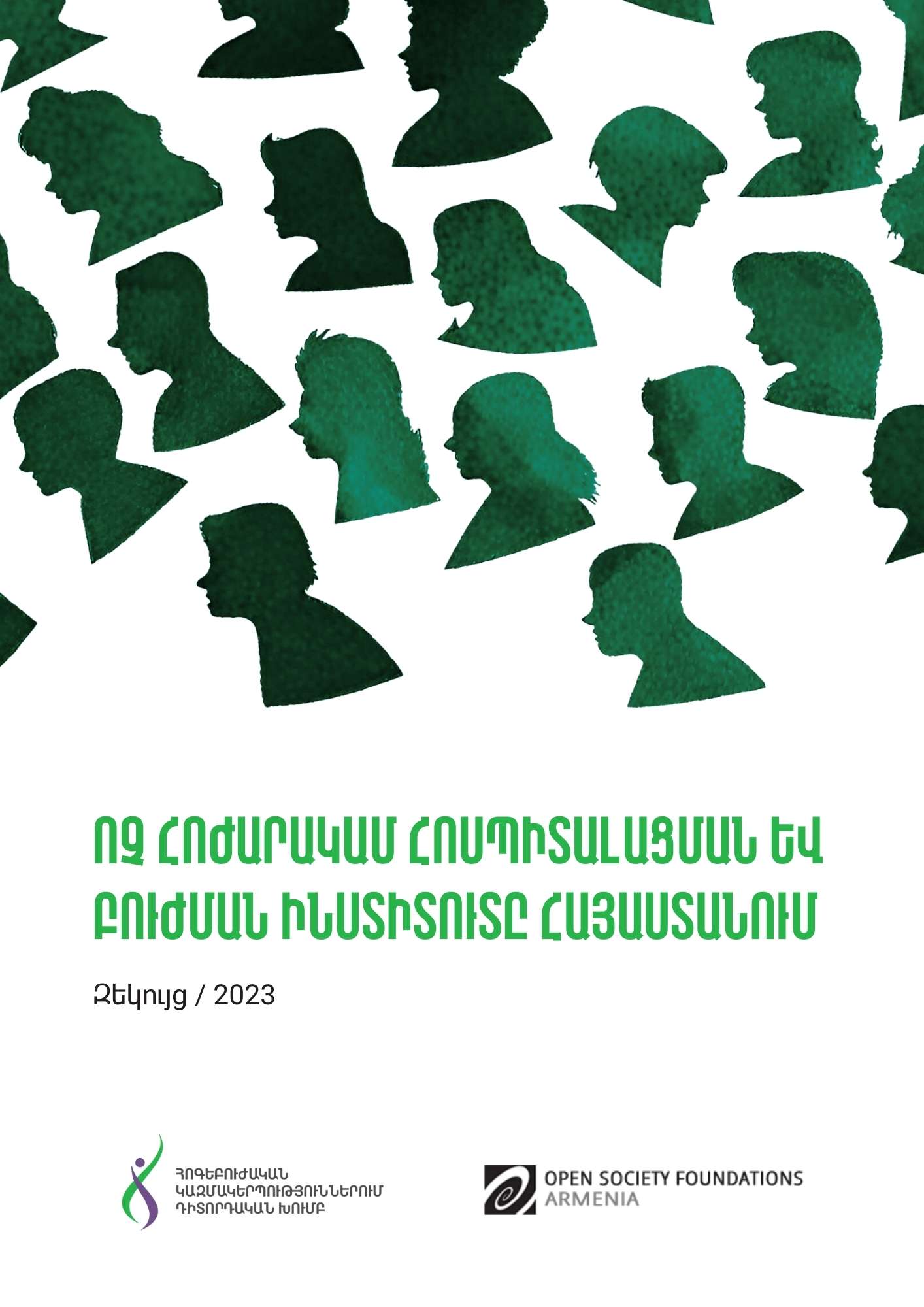10-12% of persons receiving treatment in hospitals are subjected to involuntary treatment in Armenia annually. Men aged 30-50 prevail among them.
Persons with intellectual disabilities are a separate group of those subjected to involuntary treatment. The main peculiarity in this case is the need for care and conservative treatment, however, due to lack of those services in the community, it is possible to provide care only in psychiatric institutions. As a result, persons with intellectual disabilities are subjected to involuntary treatment for years on end.
123 applications were filed with court claiming for involuntary treatment in 2022.103 out of 123 claims were completed in 2022. 69% of completed claims were upheld.
Participation of the guardianship and trusteeship body in court hearings is mandatory in case a person does not have a representative. This requirement is met, however, that participation is, as a rule, formalistic, as the representative does not have full information about the interested person, and thus cannot express a justified substantive position.
While there is a law-established requirement for participation of a representative of the guardianship and trusteeship body in the court hearing, there is no provision regarding a mandatory right to legal aid. Except for Syunik Region Neuropsychiatric Dispensary, a person subjected to involuntary treatment is not provided with an advocate’s service.
Lack of a regulation of the terms for examining appeals and cassation appeals in cases of involuntary treatment is problematic. Moreover, a person subjected to involuntary treatment is deprived of access to justice (they have to pay state duty in case of appealing judicial acts, and the rate has increased more than 4 times since 2021), as well as the right to apply to court to eliminate the judgment on involuntary hospitalization.
As monitoring results show, involuntary treatment does not guarantee that the person will not be subjected to repeated or even multiple hospitalizations in the future. A person receives treatment in hospital, conservative treatment is appointed upon completing treatment, however, some time later they stop taking medication regularly or refuse to take any medication at all. As a result, the health problem deteriorates, and a need arises for treatment in hospital. While community services, which would regularly keep in touch with interested persons and their relatives, at least contribute to decrease in the need for involuntary treatment and repeated hospitalization, as well as establishment of conditions for the right of persons with psychosocial disabilities to get treatment in decent conditions.
Recommendation
The main recommendation is to introduce community services to prevent hospitalization, and alternative mechanisms to eliminate involuntary hospitalization and treatment.
Short-term recommendations
- In case persons reject hospitalization and treatment, guarantee the right to legal aid and the compulsory condition of providing a state-ensured advocate through the Office of Public Defender;
- Guarantee substantive participation of representatives of the body of guardianship and trusteeship in court hearings regarding claims for involuntary treatment;
- Review and reduce terms for psychiatric examination, appointment of court hearings and publication of judgments, thus minimizing the period of stay in a psychiatric institution;
- Review the procedure of judgments on termination of involuntary treatment by minimizing the terms of stay in a psychiatric institution when involuntary treatment grounds are eliminated;
- Establish concrete terms for examination of appeals and cassation appeals in cases of involuntary treatment;
- Guarantee the fundamental right to judicial protection and a fair trial for persons subjected to involuntary treatment.

